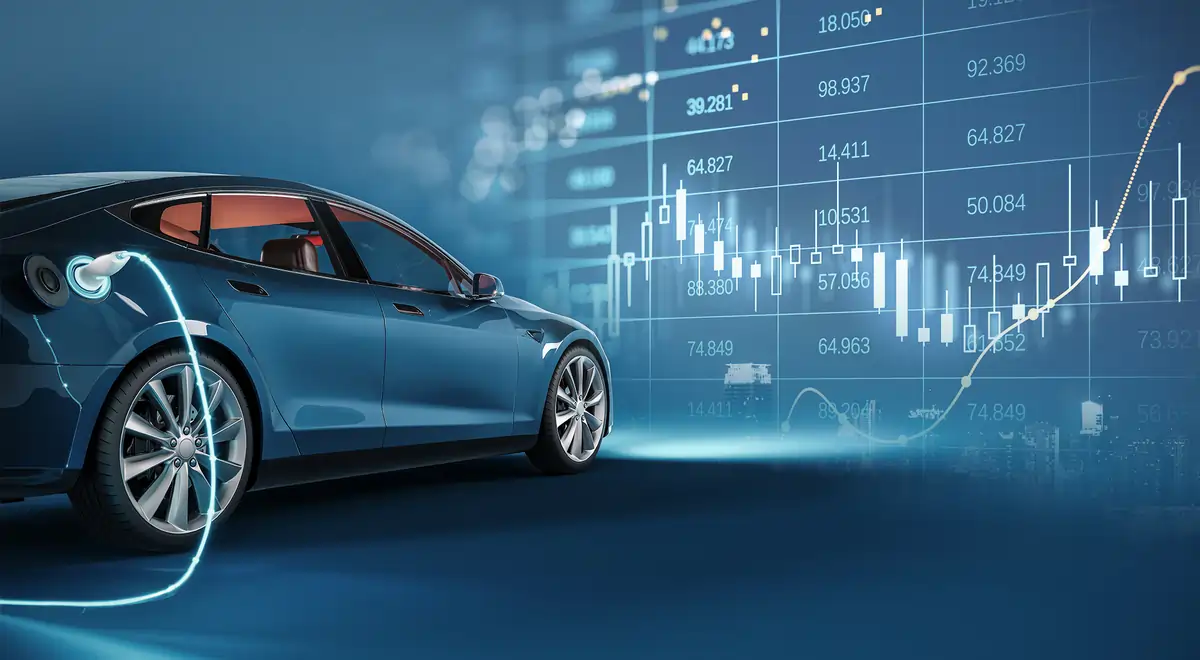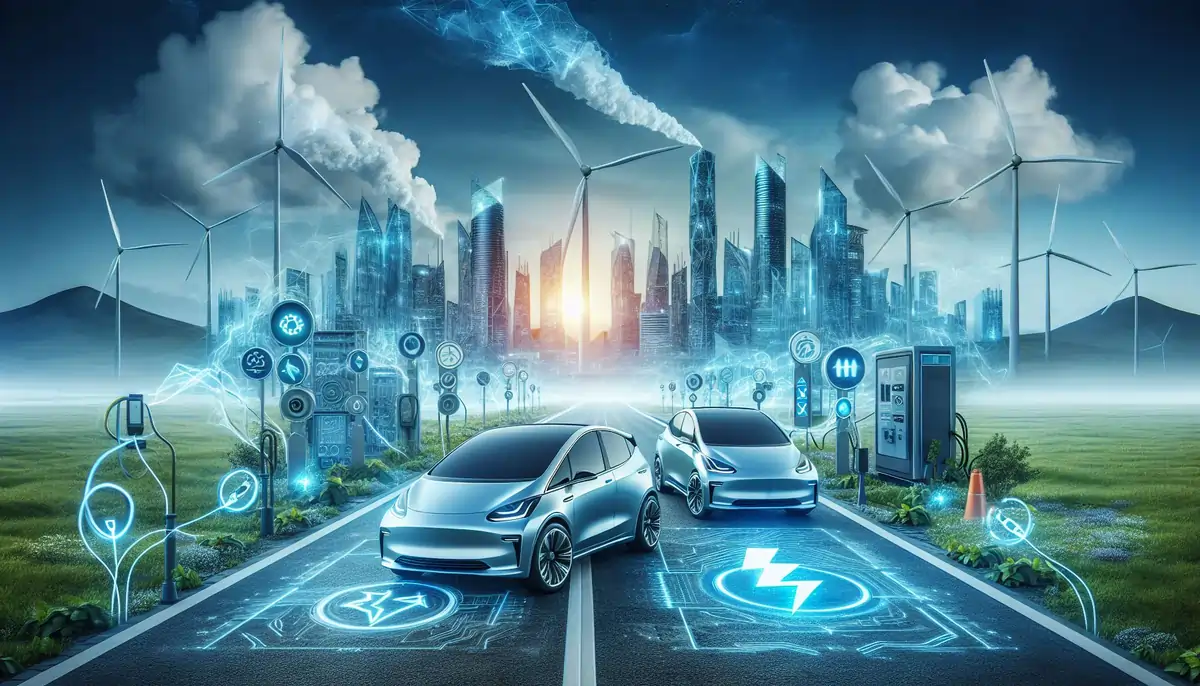Electric vehicles (EVs) are revolutionizing the transportation sector, heralding a new era of sustainability and technological innovation. With governments pushing for carbon neutrality and consumers demanding eco-friendly alternatives, the adoption of EVs is accelerating globally. This article explores groundbreaking innovations in the EV industry, the economic implications of this transition, and the costs associated with these advancements.
The Need for Electric Vehicles in a Sustainable World

Environmental Benefits of EVs
The Era of Electric vehicles produce zero tailpipe emissions, drastically reducing air pollution and greenhouse gases. Paired with renewable energy sources, EVs can further minimize the carbon footprint of transportation.
Global Trends in EV Adoption
- Government Mandates: Countries like Norway and the UK plan to ban internal combustion engine (ICE) vehicles by 2030–2040.
- Corporate Investment: Automakers and tech giants are investing billions into EV technologies.
- Consumer Shift: Rising awareness of climate issues is driving a surge in EV sales, projected to account for 40% of vehicle sales globally by 2030.
4 Innovations Transforming the EV Industry
1. Breakthroughs in Battery Technology
Battery advancements are the backbone of EV innovation, improving performance, affordability, and environmental impact.
Key Innovations:
- Solid-State Batteries: These next-gen batteries offer faster charging, greater energy density, and improved safety over lithium-ion batteries.
- Battery Recycling: Initiatives to reclaim valuable materials like lithium and cobalt are reducing waste.
- Extended Range Batteries: EVs now boast ranges exceeding 500 miles per charge, addressing range anxiety.
Estimated Costs:
- Lithium-ion battery pack: $130–$150 per kWh (current market).
- Solid-state battery pack (future): $60–$100 per kWh by 2030.
2. Advancing Charging Infrastructure
The growth of fast-charging networks and wireless charging solutions is making EV ownership more convenient.
Key Innovations:
- Ultra-Fast Chargers: Capable of delivering 350 kW, these stations recharge EVs in as little as 15 minutes.
- Wireless Charging: Emerging systems allow EVs to charge simply by parking over a charging pad.
- Smart Grid Integration: Dynamic energy management ensures grid stability and reduces charging costs.
Estimated Costs:
- Fast-charging station installation: $30,000–$150,000 per station.
- Wireless charging system: $50,000–$250,000 per unit.
3. Autonomous Electric Vehicles
The integration of AI with EVs is propelling autonomous driving technologies, redefining personal and public transportation.
Key Innovations:
- AI Navigation Systems: Optimize energy consumption through efficient route planning.
- Vehicle-to-Infrastructure Communication: Connects EVs with traffic systems to reduce congestion.
- Robo-Taxis: Autonomous EV fleets for urban mobility are gaining traction.
Estimated Costs:
- Lidar and sensor systems: $5,000–$10,000 per vehicle.
- AI software development for autonomous fleets: $1M–$5M per project.
4. Sustainability in EV Production
Automakers are adopting innovative production methods to reduce costs and environmental impact.
Key Innovations:
- 3D Printing: Speeds up production and reduces material waste.
- Aerodynamic Designs: Enhances energy efficiency and extends vehicle range.
- Eco-Friendly Materials: Increasing use of recycled and renewable materials in manufacturing.
Estimated Costs:
- Production line for EVs: $100M–$500M per facility.
- Consumer EV prices: $30,000–$70,000, depending on features.
Economic Impacts of EV Adoption

Revenue Growth from EV Technologies
| Sector | Estimated Revenue Impact (USD) | Key Benefits |
|---|---|---|
| EV Manufacturing | $1T+ annually by 2030 | Boosts employment and economic activity |
| Charging Infrastructure | $300B+ annually by 2030 | Expands public and private charging networks |
| Battery Technology | $400B+ annually by 2030 | Reduces costs and enables recycling |
| Autonomous EVs | $200B+ annually by 2030 | Promotes safe, efficient transportation |
Challenges in Transitioning to EVs
High Initial Costs
EVs are more expensive upfront compared to ICE vehicles due to battery production costs.
Costs:
- Entry-level EV: $25,000–$35,000.
- Premium EV: $70,000+.
Limited Charging Infrastructure
Rural and underserved areas face a lack of sufficient charging stations, slowing widespread adoption.
Costs:
- National charging infrastructure deployment: $5B–$50B per country.
Battery Recycling and Waste Management
Managing and recycling EV batteries remains a critical challenge for sustainability.
Costs:
- Battery recycling facilities: $1M–$10M per site.
What’s Next for Electric Vehicles?
Energy Storage and Grid Integration
EV batteries will increasingly serve as energy storage units, supplying power back to the grid during peak demand.
Solar-Powered EVs
Innovations in integrated solar panels could allow EVs to generate energy while on the move.
Hydrogen-Powered Electric Vehicles
Hydrogen fuel cell technology is emerging as a complement to battery-powered EVs, offering longer range and faster refueling.
Accelerating Toward a Greener Future

Electric Vehicles: Pioneering the Path to Sustainability
The Era of Electric vehicle industry is not just transforming transportation; it’s reshaping the future of sustainable living. With advancements in battery technology, charging infrastructure, and autonomous systems, EVs are becoming more efficient, accessible, and environmentally friendly.
While challenges like high costs and infrastructure gaps persist, the innovations driving the EV era promise a cleaner, greener, and smarter future. As adoption rates climb and technology evolves, EVs are set to lead the charge in building a sustainable world for generations to come
